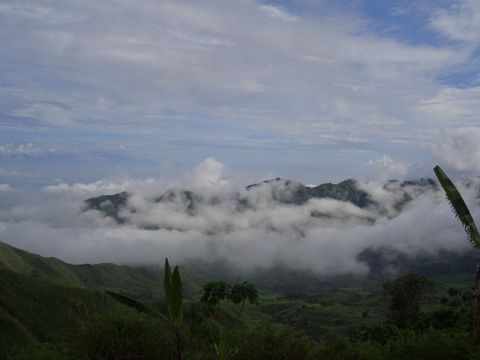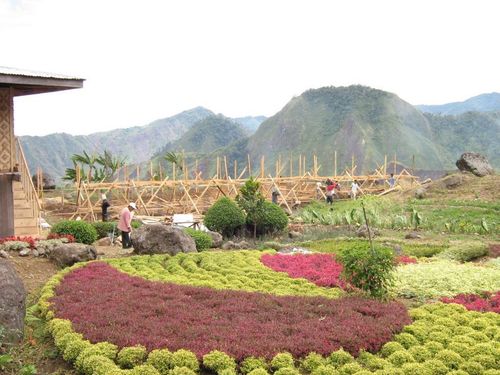About Us

our history
The first experiment in the use of students to work among the indigenous peoples of the Philippines was by two students of Mountain View College in the late 1960's. Their assignment was to form a school in the barrio of Conception in the Province of Bukidnon on the island of Mindanao.
In 1969, James Zachary, who was a teacher at Mountain View College, became aware of the Manobo people living in the mountains of Bukidnon surrounding Mountain View College. Visits to the villages found a very primitive, war-like tribe. They were hunters and gatherers and moved from place to place within their territory in search of food. Entrance into the territory of another clan or family could bring retaliation including bloodshed.
James conceived of a student missionary program whereby students from Mountain View College would take a one-year term as a missionary in the mountains and work among these people. It was learned that the Manobos were suspicious of "lowlanders" and did not readily accept strangers in the mountains. Over time, the student missionaries won the confidence of the datus or chiefs and the student missionaries were welcomed into the villages and culture of the Manobo.
The program of the student missionaries included teaching the people farming methods, village sanitation, public health, and literacy. A method used in teaching was the singing of religious songs and studying of the Bible stories for reading. The first datu to accept the "beliefs" as brought by the missionaries was Datu Tibalawan in the village of Dampaan. The first formal mission school was formed in his village. Eight mission schools were eventually established which spawned churches and schools in each of the villages. Bulalang was developed as a secondary school for the Manobos and included an airstrip, dormitories, cafeteria, classrooms, and a sanitary water supply. All schools were non-formal and received no recognition from the government.
All new students entering the program were required to attend a training program which included teaching techniques, health education, agricultural techniques, home treatments, anthropology, and other needed topics. The students would spend a year working with their assigned village after which they would return to school.
Eventually women students were admitted to the program and community service was extended to include hospital based outreach and health education. An airplane was used to service three of the schools and airdrops of supplies helped others.
Financial resources were always a challenge as initially no solicitation of funds was made. Reports of the program were many and worldwide. These reports sparked the interest of many and funds flowed to help in project support. Mountain View Foundation of the Philippines, Inc. was formed to assist in raising funds for the community service and on-campus projects of Mountain View College. These included the funding of DXCR radio which had regular programming for communities in central Mindanao. The student missionary program was funded and expanded in part by funds raised by the Mountain View Foundation. A publication known as The Hilltop Messenger was sent worldwide to tell the story of the community outreach of Mountain View College, including the student missionary program.
In the early 1980's the need for a higher degree of self support was seen as the dependence on donations was too great. With funding from Mountain View Foundation and other sources various agricultural projects were started. Villages began to participate in the production of products which included woven mats, furniture, baskets, greeting cards, paper products, and items made from rattan. These were marketed locally as well as overseas.
Between it's founding in 1969 until 1990, it is estimated that 325 students participated in the program. These students graduated from Mountain View College and are in various occupations worldwide. A study done in the late 1980's indicated that the average former student missionary had three times the likelihood of completing an advanced degree than non student missionaries. The program not only benefited those whom it served, but helped to train a very motivated and balanced graduate.
With a change of personnel and value perception of the program, it declined rapidly in the early 1990's. Promotion declined, and eventually it appeared that it would no longer continue. Former student missionaries, Joel Velasco, Alex Panes, and Daryl Famisaran, joined by Dr. Fred Webb of Mountain View College sought to revive the program. With the help of new leadership, donors from the United States, and others, in November of 1994 18 students were on their way to revive 8 schools. The organization was renamed Sulads, a word in Manobo meaning brother or sister.
By 1996 the government began to recognize the outstanding program that the Sulad program was offering and in 1997 the program was awarded recognition from the Department of Education and Culture for its outstanding work in Literacy training. Fidel V. Ramos, President of the Republic of the Philippines named the Mountain View College Sulads program as the Most Outstanding Literacy program in the Philippines for 1997. The program director, Daryl Famisaran was also awarded a plaque by the President as the Most Outstanding Literacy Worker in the Philippines for 1997. By the year 2000 the program was serving 22 villages with 44 Sulads.
The Sulad program continues to grow and now reaches to 25 villages and 63 Sulads. A new high school was established in 2004 to serve a growing number of graduates from the literacy centers. The program no longer serves only Manobos but reaches out to a wide variety of peoples and groups within the Philippines. Regional Sulads program have been started in Canada and Thailand to serve the indigenous people in those areas.
In November, 2007 the Sulads International Inc was formed to serve as an umbrella and support organization to provide assistance as the Sulad program grows worldwide.
In 2016 Sulads expanded into another region in the USA to serve the Navajo nation.
OUR MISSION
The mission of the Sulads International is to reach out in service to un-reached indigenous peoples of the world, providing them with formal and non-formal education designed to alleviate illiteracy, poverty, and disease, while promoting social awareness, giving due respect to local traditions, beliefs, customs, aspirations, and interests, so that all may see the value and beauty of their cultural heritage and way of life as purposed by their Creator


© 2024
All Rights Reserved | Sulads International Inc.
